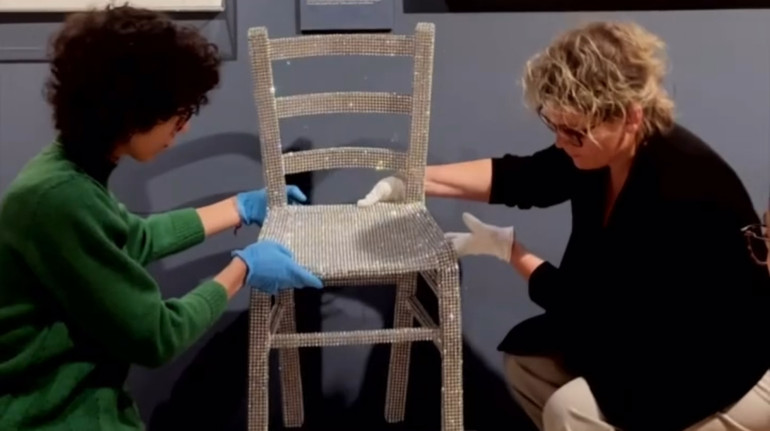He does not escape a Croat from Croatian words, he just needs to offer him a replacement for borrowings

Guest Coordination He graduated first as a surveyor and then as a croatist. Throughout his working life, he established himself as an artist of the word in the roles of journalists, editor, writer and lecturers at media faculties. We talk to Professor Boris Beck about Baustel jargon.
What are borrowers and how do we share them?
Beck: This is your whole science that I do not best understand. You have borrowings, adopters, aliens and barbarisms. Of course, there may be something else. There are Germanisms, Italianisms, Turcisms and more. Lexicologists share it all very carefully.
But it seems to me that one idea is behind it – as with foreigners, some domesticated a little more and the other a little less – to go to the feeling with the language. And feelings come and go. If we use a word, then it is ours and I would not be so strict here.
What does it mean to agree on a construction site?
Beck: Communication is the oldest human problem. It is described in the Book of Genesis in the Bible at the beginning when people went to build a tower of Babylon. They were so well organized by speaking one language that God was terrified that people would come to heaven and overthrow him, which made him mix their tongues.
So one worker would ask for a brick from the other and get a Kramp. Then he would offend him that of course everyone would understand and a quarrel would come. And so the project of building the Babylonian Tower has failed. So, it is very important to understand on the construction site.
What are the most common reasons why construction site workers reach for borrowings instead of domestic expressions?
Beck: I am not completely sure that we have a domestic expression for every word on the construction site. Borrowing, alien, barbarism, adoption, so however, these words are in fact for a century to two and that is simply « as it is said ». If you tell someone at the construction site to add Borer or Bormašina to you, the question will tell you to tell you that the drill is said.
Equally if you say a drill, everyone will understand you. It’s the same with a foster and a board. I believe everyone will understand both words. Because it is part of the habit.
Recently, one situation happened to me where I left the car with a car mechanic on a service to call me a young lady at some point, saying that my engine electrical artist had spoiled me. I was scared thinking of what a miracle it was and how much money would cost me. However, very quickly I realized that she was actually thinking of « anlasser ». So – tell anlasser that the whole world understands you (laughs).
To come back to the construction site. It’s not that a Croat does not like a homemade word. The Croat will love to use a homemade word, but it must be well formed. The drill is a great example of this because we immediately know that this is something that is drilled. I don’t necessarily have to speak Bomešina. The washing machine also. The dishwasher, and for the laundry remained a wet machine or a row of makin.
How is the use of borrowings in Croatia regionally in Croatia?
Beck: This is where Professor Emeritus Ivo Zanic, my mentor helped me a lot. It surprised me that the answer to this question lies in the industrial revolution. What came into the language before the Industrial Revolution came from Dalmatia from Venice. That is why the Pinel brush, dots of Karijola, is a nail nail, and the Macola hammer.
The change comes with an industrial revolution since Siemens had no plants in Venice but in Germany. That is why « Getriba » is the same thing in Zagreb and in Split. « Salung » too. There is no Venetian version of the word. In addition, the use of German words increased in the 1960s and 1970s with the departure of our people to Germany. There they completely adopted the German terms they returned home and they have stayed to this day.
What are your favorite Baustel borrowings?
Beck: My favorite is « Roh Bau ». There is something raw in it, like a beast that threatens something to torn, raw construction. I like the concept of something that has not been made until the end, and yet it seems complete.
I noticed that I use the syntagm of « roh bau » metaphorically in everyday life. Most often in working with students when developing graduate papers. Then when they want to defend their work in the fall, I tell them that I want to see the work in a high degree of construction, upgrading, or high « roh bau » before the holidays. I noticed that, most of all, the student, they did not understand me and that I had to explain to them often what « roh bau » means at all.
How do you predict the future of the language of the profession in the context of increasingly internationalization of labor at construction sites?
Beck: What can be noticed on Croatian construction sites is an increasing number of workers from the same people who speak the same language among themselves that we do not have to understand at all. Who knows, maybe in what year we will find some kind of Nepalian word for Špahtlu or Vaservag!
See construction podcast-notes and subscribe to the YouTube channel Coordination In order not to miss the most interesting and most important news from the construction world.
https://www.youtube.com/watch?v=7gxzendnbt8
VIDEO
The guest of the construction podcast is an experienced linguist Boris Beck, with whom we talk about construction jargon.







